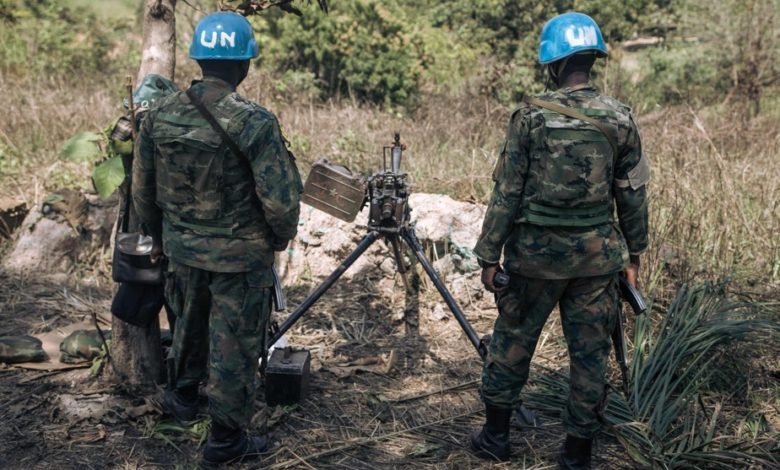UN Condemns Blockade Of CAR Capital Bangui

The United Nations Multidimensional Integrated Stabilisation Mission in the Central African Republic (MINUSCA) Thursday, condemned the determination to “asphyxiate the Central African Republic capital Bangui by an armed coalition which is bent on overthrowing President Faustin Archange Touadera”.
In a communiqué issued in Bangui, the MINUSCA warned of the “social and humanitarian implications which the citizens could suffer” if the capital Bangui were to be completely cut off from the outside world.
Since the rebel offensive that was launched a week before the December 27, 2020, legislative and presidential elections, Bangui has been subjected to a blockade by the principal armed groups that occupy two-thirds of the Central African national territory.
They have carried out attacks on the national highways number one and three connecting the capital of the enclaved country to neighbouring Cameroon.
“Attacks against commercial convoys by the anti-Balaka, the 3R, the MPC and UPC and their political allies, including former president Francois Bozize, can make it impossible for the availability and accessibility to foodstuff, medicines and other products essential to the functioning of public services such as the hospitals,” Vladimir Monteiro, MINUSCA spokesperson lamented in the document.
“These armed groups and their political allies are responsible for the serious violations of international humanitarian law and human rights.”
HumAngle reports that a convoy of commercial vehicles escorted by MINUSCA soldiers was ambushed by armed groups on Monday and was forced to discontinue its journey. Two drivers were wounded in the attack, MINUSCA confirmed.
“The MINUSCA has made the reopening of the Beloko-Bangui highway (which links Cameroon to the capital), a priority in order to permit the resumption of logistical movement,” insisted Lt.-Colonel Abdoulaziz Fall, the MINUSCA spokesperson in Bangui.
Also, Denise Brown, the UN Humanitarian Coordinator in the Central African Republic, lamented that “The current constraints on the supply of foodstuff which is already insufficient has again forced the prices of basic foodstuff to climb”.
The prices of certain products have since increased by at least 50 per cent in certain areas and in the Central African Republic, which is the second poorest country in the world.
More than one-third of the population (1.9 million persons) are faced with a high level of food insecurity, according to the United Nations.
Support Our Journalism
There are millions of ordinary people affected by conflict in Africa whose stories are missing in the mainstream media. HumAngle is determined to tell those challenging and under-reported stories, hoping that the people impacted by these conflicts will find the safety and security they deserve.
To ensure that we continue to provide public service coverage, we have a small favour to ask you. We want you to be part of our journalistic endeavour by contributing a token to us.
Your donation will further promote a robust, free, and independent media.
Donate HereStay Closer To The Stories That Matter




